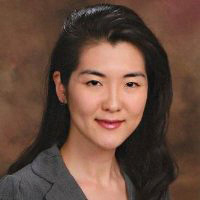General Cardiology: First Year Fellow

Name: Laurel Yong-Hwa Lee, MD, DPhil
Current position: Cardiology Fellow (first year), Brigham and Women's Hospital
The path that has led me to pursue an academic career in cardiovascular medicine has been a series of decision-making processes guided by hard work, careful introspection and generous mentorship.
My journey began at the Massachusetts Institute of Technology where I built the foundation for my work in immunology, which subsequently spanned both adaptive and innate immunity in mice and humans. While pursuing a Ph.D. in immunology as a Rhodes Scholar at Oxford, I led a collaborative study in the UK and Vietnam investigating the influenza virus-specific T-cell immune responses in humans in the setting of H5N1 bird flu outbreaks around the world.
Upon entering medical school at the Harvard-MIT Health Sciences and Technology, I was captivated by the clinical complexity and underexplored immune contribution to vascular diseases. Bringing together immunologists, vascular neurologists, pathologists and surgeons, I dedicated my preclinical years to investigating post-stroke inflammatory cascades following middle cerebral artery occlusion in mice.
I had my first clinical encounter with cardiovascular diseases during my vascular surgery rotation as a third year medical student. I instantly fell in love with the patient population, as I embraced the challenges of their numerous medical comorbidities and their urgent surgical needs--all consequences of inadequate perfusion due to their diseased hearts and vessels. Their suffering inspired me to enter surgical residency and pursue a career in vascular surgery.
It was an incredible privilege during my two years of surgical training to take care of my patients' hearts and vessels directly with my own hands. Through a broad repertoire of cases ranging from carotid endarterectomy to ischemic bowel resection to valvular surgeries, I developed invaluable insights into my patients' disease processes. While I enjoyed all aspects of surgical residency, I witnessed many of my patients continuing to suffer, even after successful surgical procedures due to their irreversible cardiac pathology and extensive vascular disease affecting circulatory regions not amenable to interventions. I vividly recall an elderly man with ischemic cardiomyopathy and extensive atherosclerotic disease status post coronary artery bypass graft and percutaneous coronary interventions, lower extremity revascularizations and stenting of the superior mesenteric artery who was transferred for further management of his chronic mesenteric ischemia. He had been evaluated at five different hospitals. The diffuse calcification throughout his mesenteric vessels with no treatment options left him debilitated with unrelenting chronic pain and malnutrition. Together with these patients and their families, I saw first-hand the limitations of available treatments and how a better understanding of the fundamental mechanisms of their disease processes could profoundly impact outcomes. As a result, I redirected my path to internal medicine residency during my PGY-3 and -4 years in preparation for a career in academic cardiology and vascular biology research.
I am currently in my first year of cardiology fellowship at the Brigham and Women's Hospital. So far, I have completed rotations in the cardiac intensive care unit, inpatient general cardiology service, emergency department triage and consults, cath lab and echocardiogram. These core rotations, in combination with our regular calls and weekly clinics, have provided a truly rich and rewarding clinical training environment. Following the next two years dedicated to full-time clinical training, I look forward to building a career that combines cardiovascular medicine practice with basic science research focused on immune-vascular interaction. I am very fortunate to have my great mentors from the scientific, surgical and cardiology communities guiding me through each of these steps. I also cannot emphasize enough the importance of finding and pursuing what excites one most, no matter what paths are ventured and risks taken.